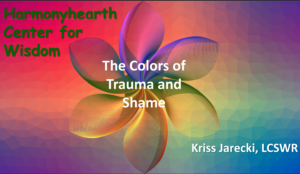Licensed and Qualified
EMDR & Progressive Counting Online Trainings
Expanding the knowledge and treatments of trauma for mental health professionals around the world.
Become the Kind of Therapist You’ve Always Wanted to Be.
As a therapist, it’s important to keep growing and developing your skills so you can always provide the best possible care to your patients.
Add to your already impressive toolbox with one of our online EMDR and Progressive Counting training courses for professionals.
You’ll learn a rich variety of client-centered techniques while earning your CEs hours. Expand and build on your skills and get a deeper understanding of these revolutionary therapies. After-all, practice makes progress!
UPCOMING COURSES
July 9 & 10 2025, july 29, 30 & 31 and july 18 2025
PROGRESSIVE COUNTING COURSE

Progressive Counting (PC) is a fairly new research-supported trauma treatment that is effective, efficient, well-tolerated by clients, and relatively easy to master. This is a hands-on clinical skills training for using Progressive Counting with clients of all ages who have been exposed to significant trauma or loss. This in-depth training will cover trauma theory, impact of trauma and loss, identification and assessment of traumatized clients, and directly help clients to manage their symptoms, resolve their trauma/loss memories, and prepare to cope effectively with future challenges. Here are some of the many benefits of PC
- Has a distancing and a privacy component
- Well tolerated by clients of all ages
- Uses brain speed rather than mouth speed making it an efficient and effective therapy
- Utilizes memory reconsolidation to bring healing
- Relatively easy and les costly for clinicians to learn and master
Approved by the Trauma Institute/Child Trauma Institute / 32 CE's
To register email Kriss at krissjarecki@harmonyhearthwisdom.com
August 11 2025
DISCO SOCKS PRODUCTIONS LLC. PRESENTS: HEALING WITH PRIDE: QUEER AFFIRMATIVE EMDR

All mental health clinicians work with trauma as trauma is implicated in every mental health disorder. Thus, understanding the Adaptive Information Processing Model (AIP)- what trauma is, how trauma occurs and symptoms and behaviors of when it does are essential to providing thorough assessments, accurate treatment planning and appropriate therapeutic interventions.
This workshop will not only focus on these aspects, but we will take a closer look at the effects of trauma on the Queer community.
During EMDR phase I it is important to ask about communities and cultures clients are members of. If the client is a member of the Queer community, we want we want to ask questions to get to know the client’s terminology, experiences with and relationship to being in the community, and acknowledge cultural differences between the client and therapist.
In phase 2 we can ask about good experiences and positive attributes a client has gained from being in the community and install them as resources.
In phases 3-8 we concentrate on relationship attunement, selecting an appropriate target order strategy, and cultural inclusion (examples- cultural oriented options on the NC/PC list and guiding clients to not say things outloud if they don’t want to), We will also look at what social media has to say about persons in the Queer community and what impact that has on the client and their therapy experience.
Our course will round out with discussions on participant experiences and future direction.
6.5 CE Provided By Disco Sock Productions:
NBCC/ACEP: 7645
ASWB/ACE: 2116
6.5 EMDRIA CE
registration now open for july 21 AND 22, 2025
EMDR Reboot and Refresher

Research tells us that a successful EMDR experience is directly correlated to implementing the protocol correctly and getting a client to do EMDR has a lot to do with how it is presented and the confidence the therapist has when presenting and implementing it (Maxfield & Heyer, 2002). We also know that factors related to whether clinicians stay with EMDR and get good at it depends on whether they continue with trainings and consultation after finishing basic training (Grimmett & Galvin, 2015).
Via discussion, demonstrations, handouts and client videos this workshop seeks to provide a comprehensive overview of the standard protocol (includes a practicum) and EMDR’s variations such as when and how to use cognitive interweaves and float back, implementing cluster work and when and how to use future template.
We will also take a look at explaining the EMDR procedure to clients, options for deciding on target order and ways to determine when a client is ready for EMDR.
9 EMDRIA CE's / 9 CE
Fall dates and registration coming soon!
EMDR Therapy with Persons with a Disability: A Healing Journey from Trauma to Resiliency

Did you know that 20% of people have a significant disability whether it’s developmental, cognitive, physical, or mental and many have co-occurring diagnosis and are 4 times more likely to experience trauma than persons who do not. This makes the use of trauma treatment and resilience building methods such as EMDR a critical component in healing. One of the wonderful things about EMDR adaptive memory reprocessing is that it does not discriminate as it empowers all individuals to adaptively face their realities and heal via such processes as neurogenesis and cross neural plasticity.
This training includes didactic lecture, handouts, guided activities, multiple case examples and client videos. The workshop compares the similarities in how trauma and disability is defined, reviews the Adaptive Information Processing Model (AIP) as it relates to persons who have a disability, familiarizes participants with cultural terminology, describes adaptations of EMDR methods that accommodate disabilities, and highlights the benefits of helping persons with disabilities to find and build community.
4.5 EMDRIA CE / 4.5 CE
REGISTRATION NOW OPEN! EMDR BASIC TRAINING COURSE! OCTOBER 6 & 7, OCTOBER 30 & 31, NOVEMBER 3 & 4, DECEMBER 1 & 2 2025
EMDR BASIC TRAINING COURSE

This course provides comprehensive training for clinicians in trauma treatment, covering everything from establishing a foundational understanding of trauma and neurobiology to implementing EMDR protocols effectively. Participants will learn relaxation techniques, EMDR phases, mechanisms of effect, and specialized tasks such as cognitive interweaves and future templates. Case consultations and various interactive methods, including lecture and group discussion, enhance learning, preparing participants for EMDR certification.
EMDRIA Approved / 52 CE
ON DEMAND ONLINE COURSE
The Tree of Me and Seed to Weed
A self-paced course of interactive techniques and client videos to explain trauma, gather targets and highlight treatment outcomes. Great for kids, teens and adults!
EMDRIA Approved 3 CE / 3 CE
CUE Management Solutions, LLC is approved by the American Psychological Association to sponsor continuing education for psychologists. CUE Management Solutions, LLC maintains responsibility for this program and its content.
CUE Management Solutions, LLC is recognized by the New York State Education Department’s State Board for Psychology as an approved provider of continuing education for licensed psychologists #PSY-0242.
Conflicts of Interest:
There is no conflict of interest or commercial support for this program.
Cancellation Policy:
Please email us to request your cancellation.
Grievance Policy:
We seek to ensure equitable treatment of every person and to make every attempt to resolve grievances in a fair manner. Please email us with your written grievance. Grievances would receive, to the best of our ability, corrective action in order to prevent further problems.
Accessibility Policy:
This program adheres to the standards of the Americans Disabilities Act. Please contact us if special accommodation is required.
ON DEMAND ONLINE COURSE
The Colors of Trauma and Shame

Working with trauma survivors requires a core understanding of trauma, the nature of shame, relationship with trauma, its impact on individuals, and how it can be addressed in trauma treatment. This course will provide an essential overview of trauma, shame, its relationship to trauma, neurobiological aspects and strategies for addressing it in treatment.
6.5 CE
Sharing our Knowledge with our Community
Sign up to our mailing list so you can get exclusive access to new online training courses and industry news.


